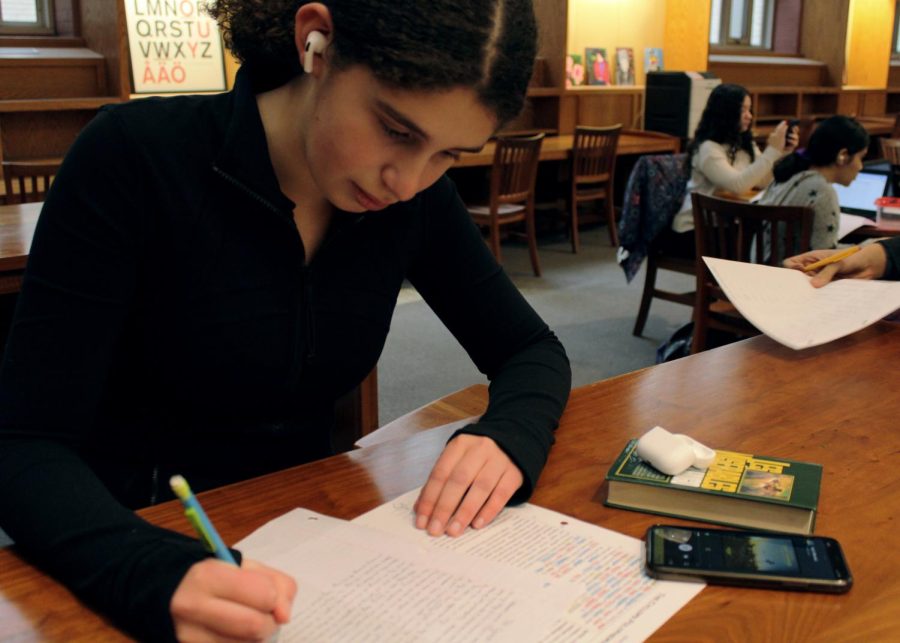No Lows to Lo-fi
Today, searching “study playlist” on YouTube or Spotify will yield hundreds of results in less than a second, with many playlists amassing millions of views. High school students should develop study habits that revolve around listening to calming background music, such as lo-fi. One should listen to music while studying and working because it helps one stay attentive.
Trying to study while under stress is counterproductive. Having participated in many Science Olympiad competitions that require countless hours of studying, William Liyuan (III) knows this feeling all too well. He explains, “Music can be really useful for when you need something to help de-stress and keep you awake for work.” Calm music creates a serene environment that limits distractions and makes for a more relaxing experience.
Background music allows people to absorb information faster. The brain creates patterns to help recall, understand and process knowledge. While listening to music in a study session, neural activities mirror the rhythm of the music. For instance, processing slower music makes neurons fire slower, which is beneficial for alleviating stress. On the other side of the spectrum, upbeat music makes neurons fire faster, keeping people motivated while they study.
Furthermore, music can cause the brain to initiate a synaptic response and release dopamine. This “reward” hormone allows the mind to overcome the difficult and frustrating parts of studying without burning out, helping people push through the obstacles of studying.
Music, however, is not the only way that people can study more effectively. Boston Latin School guidance counselor Ms. Jennifer Segal explains, “Try different strategies to find your best fit. Also, realize that you may need to study differently in different classes as well. […] Take breaks! Stand up and move around. […] Taking breaks helps you to refocus your attention and be more efficient.”
Some people may argue that listening to music while studying is distracting, as your brain will levy more attention to the background noise. A study from Sage Journals finds that this is only true in some circumstances: typically, only loud music is distracting. In fact, to be considered “loud,” the music had to be as loud as a vacuum cleaner. For people who listen to music at a reasonable volume, there should be no adverse effect on one’s focus.
BLS Math Team Captain Owen Jin (I) says, “I like to listen to instrumental music or more peaceful K-pop songs at a low volume while studying. […] Music does help me de-stress and relax. If it is not too loud, but somewhat upbeat, it keeps my motivation high.”
Vocal music is more distracting than instrumental music because its lyrics tend to divert one’s attention away from studying and work. Liyuan adds, “When doing heavy sustained work it might be detrimental to listen to music with lyrics.”
There is a multitude of music genres on YouTube, Spotify and other streaming platforms. The most productive genres, however, are lo-fi and classical, which kick off a study session with a positive, engaging mood.
Studying is, without a shadow of a doubt, a big part of BLS life, especially as tests become more demanding throughout the school year. While studying, the mind and body can easily become exhausted. Music, however, can be a major tool, relaxing the mind and drowning out the distracting noises of everyday life, in turn helping students focus better, absorb information quickly and gain motivation while studying.







